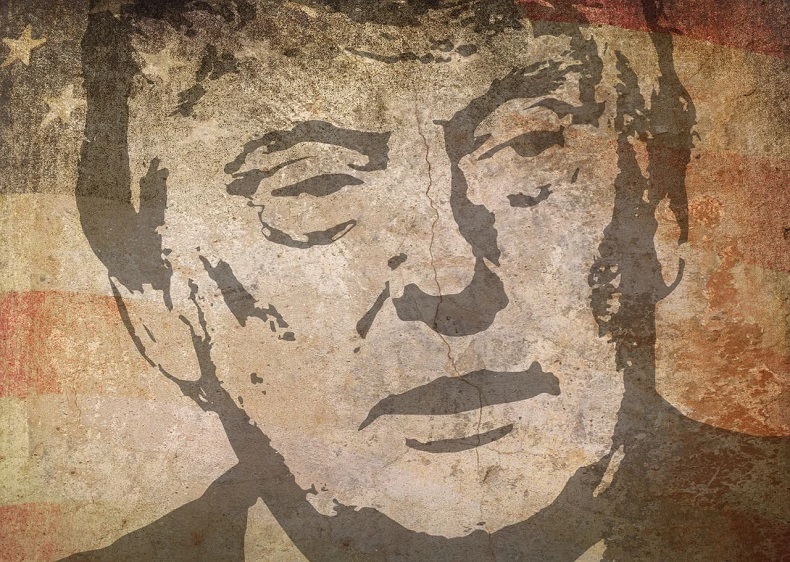Trump has paused tariffs for 90 days while further increasing the rate on all Chinese imports, with the latest reaching 125%.
In further industry reaction, Marcus Brookes, chief investment officer at Quilter Investors said: “It appears Donald Trump cares about what markets think after all. After less than a week, he has rowed back on the reciprocal tariffs for countries, instead leaving the 10% universal tariff in place for all but China. China’s tariff rate has increased to 125%, although this won’t make much difference compared to the 104% it was at, but suggests the main aim of all of this exercise was to rebalance trade with China.
“Trump is gaining a reputation now for flip flopping on tariffs and not having a consistent economic policy. Even with this latest announcement, we still have the uncertainty from the fact this is just a 90 day pause. Government bond yields had been rising at a worrying rate and stock markets showed no sign of stabilising.
"Trump has likely stepped in before he would have had his hand forced by the Federal Reserve, a humiliation he clearly wants to avoid. Even so, the damage is arguably done for the US. Many consumers and businesses cannot plan with any sort of confidence just now and may see a recession hit regardless. Spending and investment could be pared back and would be completely counter to everything Trump said he wanted to achieve.
“What happens after this, or during for that matter, is anyone’s guess and as such investors shouldn’t get used to the sugar high markets have reacted with. These sorts of market issues require calm heads and cool hands, so for investors, patience is key. Drip feeding money into investments is the best way to ride out this period of volatility and ensuring your portfolio is in good shape once things settle down again.”
Alberto Matellán, general manager of La Financiere Responsable (LFR), MAPFRE’s French subsidiary investment manager, suggested that “you need a good financial adviser” and that investors should keep an eye to how to manage the situation as “opportunities may arise as well”.
He added that it is premature to discuss potential recession, given the ability for institutions such as central banks to respond, as well as the ability for economies in Europe and China to reach for tools to mitigate the impact of tariffs.
And he noted that falling oil prices will release income and cushion against slowing growth.
Thornburg Investment Management Head of Fixed Income Christian Hoffmann said : "Even if the administration decides to de-escalate global trade wars and shift their focus to other policy areas, we’re still not out of the woods. Uncertainty remains exceptionally high, and our attention will move away from the president’s tweets and back to economic data to assess the damage that’s been done."
Chris Marangi, co-CIO of Value at Gabelli Funds said: “Wednesday's move is the kind of stuff that gets us up in the morning as active managers. We should have come to expect the unexpected through the first 80 days in this administration. I'm a little surprised that Trump walked it back as quickly. There are still a lot of questions out there especially what happens with China but also Canada, Mexico in particular.
"Where do we go from here. We don't just simply roll the clock back one week. The odds of a recession are probably lower this afternoon than they were this morning, but they're certainly higher than they were a week ago. There has been enormous wealth destruction, a blow to consumer confidence, corporate confidence, and we expect earnings to probably be lower and you have to think about the multiples which are harder to ascertain. Certainly investor confidence in the predictability of policy in the US has gone down, maybe not permanently, but certainly for the short term.
"One of the questions, certainly we've been talking about for weeks and weeks is there a Trump put and where is Trump put. The Trump put actually might have been triggered by what happened to the bond market overnight. You think about unintended consequences and things breaking when there's a lot of volatility and I think one of the reasons the market is up and so strong this afternoon is that we've probably taken some of those catastrophic cascading events off the table for now. This is not over, by any stretch, it's a pause, and we're going to go through another three months of negotiations and rhetoric.”
The world’s two largest economies are “no longer shadowboxing”—they are now locked in a full-scale trade war, said deVere Group CEO Nigel Green.
"No longer a war of words, this is now a war of action—and the effects will ripple through every major asset class, industry, and economy."
He added: "Trump’s 90-day pause for non-retaliating countries highlights another key truth: markets, businesses, and consumers have zero tolerance for sustained economic instability.
“The administration’s pivot shows that even the architects of aggressive policies must respond when the costs become too visible to ignore.
“The US-China relationship is entering a period of open hostility that will not easily unwind. Even if negotiations resume, the trust required for genuine cooperation has been badly eroded.”
Wenli Zheng, portfolio manager of the T. Rowe Price China Evolution Equity strategy said: "The White House has announced a further increase in tariffs on all Chinese imports, with the latest rates reaching 125%. Although the jump from over 50% to over 100% might seem significant, these levels are effectively prohibitive and are likely to cause substantial trade disruptions.
"To provide context, China’s real estate sector constitutes over 20% of its GDP. In contrast, exports to the US account for only 3-3.5% of China's GDP, highlighting the relatively limited direct impact of US trade on China’s overall economy.
"The Trump administration is committed to bringing strategic manufacturing back to the US – including sectors such as steel, automotive, semiconductors, pharmaceuticals, and shipbuilding. This consistent message suggests a willingness to endure short-term pain and disruption to achieve long-term goals.
"Regardless of the tariff's specifics, the uncertainty is likely to cause businesses and consumers to pause their purchasing activities beyond the immediate rush purchase. Commodity-based businesses that are sensitive to shifts in global demand and supply may experience disproportionate impacts.
"To assess the tariff's impact on China's economy, consider that exports constitute 18% of China’s GDP, with direct exports to the US accounting for 15% of that figure. This translates to approximately 2.7% of China’s GDP, or 3-3.5%, when including trade diversions and re-exports of intermediate goods.
Zheng continued: "The MSCI China Index shows a surprisingly low revenue exposure to the US at about 1%. While much of China’s exports are conducted by multinational corporations or Taiwanese Original Equipment Manufacturers (OEMs), Chinese companies may still suffer secondary impacts of a weakened economy.
"Over the past four years, China’s macroeconomic landscape has been characterised by weak domestic demand and resilient exports. This trend is likely to reverse over the next few years, with exports facing strong headwinds and the domestic economy showing signs of recovery, even before significant stimulus measures.
"China’s recent deleveraging, particularly the deflation of the property bubble, has provided policymakers with greater policy flexibility. This has created potential in domestic consumption and investment-related sectors. This shift is not solely triggered by tariffs but reflects a trend that is expected to continue in the next 1-2 years.
"Finally, current disruptions are expected to create pockets of opportunities, as did the disruptions during the COVID-19 pandemic. It is crucial to remain vigilant and think creatively to capitalise on these emerging opportunities."










